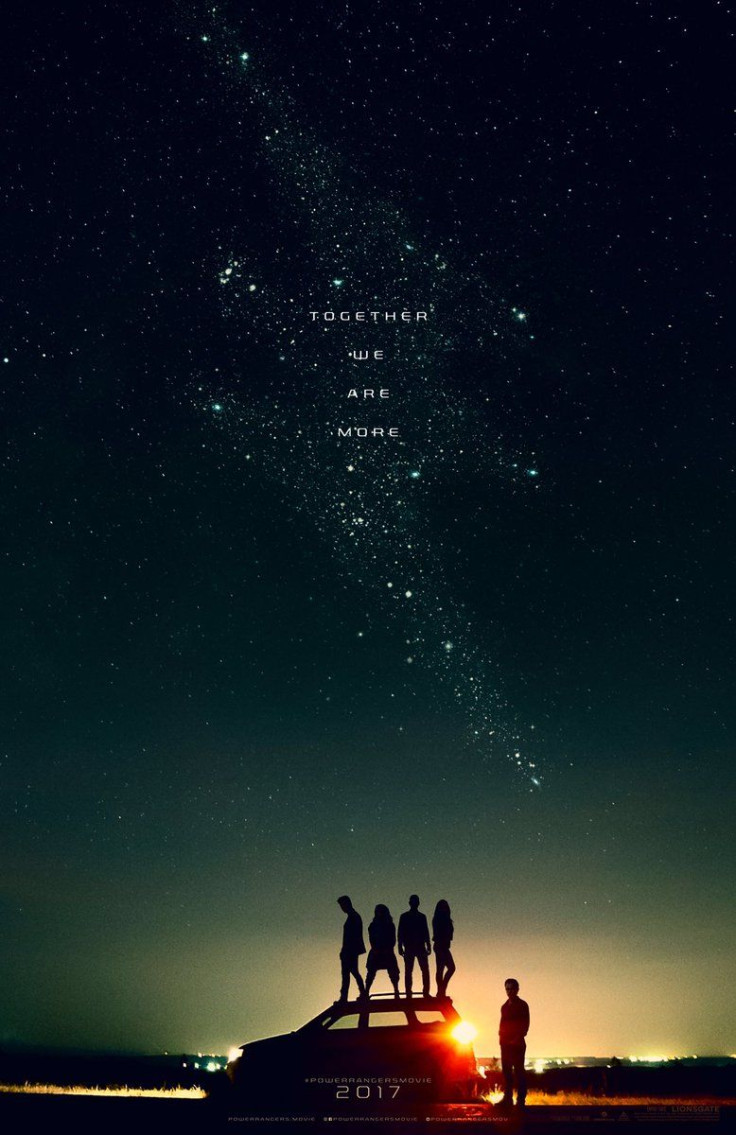In an affecting guest column, original Power Rangers star Billy Yost (the Blue Ranger) wrote about how important the new Power Rangers movie will be to LGBT fans, thanks to the relevant and timely inclusion of the first LGBT superhero character in a blockbuster film.
That character? The Yellow Ranger, Trini, is wrestling with her sexual orientation, with one character who first assumed “boyfriend problems” correctly concluding the issue may actually be “girlfriend problems.” For Director Dean Israelite, the small scene is pivotal.
"For Trini, really she's questioning a lot about who she is," Israelite said to The Hollywood Reporter. "She hasn't fully figured it out yet. I think what's great about that scene and what that scene propels for the rest of the movie is, 'That's OK.' The movie is saying, 'That's OK,' and all of the kids have to own who they are and find their tribe."
In the column, Yost writes about how different the entertainment climate was in the early ‘90s, when the original Power Rangers show was on the air. Beleaguered by workplace harassment over his possible homosexuality and terrified that rumors of being gay would destroy his career, Yost had no recourse and eventually left the show.
“When I was on Power Rangers, I never once was dating anybody. I was living a life that wasn't fulfilling and constantly filled with lies to cover my tracks,” wrote Yost, who went on to describe the brutal course of conversion therapy (a debunked and abusive practice from the religious right meant to force a gay person into heterosexuality) that led to a nervous breakdown.
He went on to explain why he decided to speak up about those experiences.
“In 2010, I spoke out publicly about the harassment that happened to me while I was on Power Rangers because we were seeing an upswing of teenage suicides. A lot of those suicides were kids who were struggling with their sexuality and that really hit me hard because I had struggled so much with suicide, especially when I was on Power Rangers. There were at least three times where I really contemplated killing myself very seriously while I was on the show,” wrote Yost, providing context to the importance of representation when it comes to struggling and marginalized LGBT kids.
All of that background information is critical to understanding why Yost praises the new movie’s inclusion of Trini’s questioning plot.
“Choosing the character of Trini adds a whole different dimension to what can be done with that character in terms of being a questioning youth or a lesbian and coming to terms with all of those feelings that you have when you are a teenager. I think that's awesome to portray,” wrote Yost.
He added that Trini’s inclusion isn’t only important for LGBT kids, but for those whose ignorance about LGBT people leads them to demonize, abuse or villainize them.
“The more Hollywood puts lesbian, gay, bisexual and transgender, questioning, intersex characters in a film or TV show, it helps people understand and see that people are just people. And that we're all the same. We're not deviants. We're not all these horrible things many people want to say. For people that don't get to experience LGBTQI people in real life, seeing these types of characters on TV or in films helps normalize us to them, which I think is necessary and vital.”
Yost also pointed to the seamless inclusion of Trini’s backstory and its unforced quality, an issue that concerned him.
“People always ask me, ‘Wouldn't it be great if there's a gay character on one of the Power Rangers TV series?’ And I always say, ‘Yes, it would be great,’ but I don't want people to feel like producers or television studios need to be forced into creating these characters. I want it to feel like these characters come into being organically. With the new Power Rangers , it feels like it was the right choice for the right character, so that makes me even more happy,” wrote Yost.
Have you seen the new Power Rangers movie? What did you think of the new rangers? Feel free to let us know in the comments section below.





![[EG April 19] Best 'Stardew Valley' Mods That Will Change](https://d.player.one/en/full/226012/eg-april-19-best-stardew-valley-mods-that-will-change.png?w=380&h=275&f=955520b8313253ee3c39c791f6210f38)












